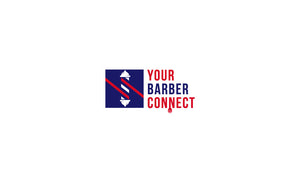The Sharp Edge of Trust: The Clipper Ambassador Conundrum

In the buzzing world of barbering, the hum of clippers is a call to artistry and precision. It's a world where brands like Wahl, Andis, and BaByliss have become household names, synonymous with quality and reliability. However, beneath the polished chrome and sleek designs lies a contentious issue: the use of barbers as brand ambassadors without fair compensation. It's a complex dance of exposure, trust, and potential exploitation that merits a closer shave.
The Barber-Ambassador Model: A Double-Edged Sword
Major clipper companies have long leveraged the influence and trust barbers hold within their communities. By appointing them as brand ambassadors, these companies gain authentic exposure and credibility. Imagine your favorite barber, the one who knows just how to tame that cowlick, raving about their latest clipper. It's compelling, isn't it? That's the power of trust in action.
However, the compensation for these ambassadors often comes in the form of free equipment or discounts on products rather than actual monetary payment. It's akin to paying an artist with exposure instead of cash—a currency that, unfortunately, doesn't pay the bills. This practice raises questions about fairness and the true value of a barber's endorsement.
Naming Rights and Royalties: The Fine Print
Adding another layer to this scenario is the trend of naming clippers after well-known barbers, using their name, image, and likeness to market products. While it sounds like a significant honor, the devil is in the details—or, more specifically, in the royalty checks. Reports suggest that barbers receive a mere 1-2% in royalties from sales, a sliver of the profit pie that hardly seems commensurate with the value they bring.
Is this exploitation? It's a prickly question. On one hand, these partnerships can offer barbers a platform and recognition on a global stage. On the other, when the financial rewards are so minuscule, it's hard not to see shades of corporate greed.
The Current State: Trimming the Excess
The barbering community is buzzing with discussions about fair compensation and respect for their craft. Social media platforms, forums, and industry gatherings are alive with barbers sharing their experiences and seeking a fairer slice of the pie. It's a growing movement pushing for transparency, respect, and equitable compensation.
Changing the Narrative: From Exposure to Equity
So, what can we do to shift the balance? The answer lies in solidarity, education, and negotiation.
- Solidarity: Barbers and stylists can unite to form a collective voice, amplifying their concerns and demands. There's strength in numbers, and a unified front is harder to ignore.
- Education: Knowledge is power. By educating themselves on contract negotiation, intellectual property rights, and the value of their personal brand, barbers can negotiate from a position of strength.
- Negotiation: Instead of accepting the status quo, barbers can push back on unfair contracts and seek terms that recognize their true worth. It's not just about saying no to bad deals but proposing fair ones.
The Cut to the Chase
The relationship between clipper companies and barbers is ripe for a new style—a cut that respects the artistry, influence, and economic contribution of barbers worldwide. It's time for a model that pays not just in clippers and discounts but in cold, hard cash and fair royalty agreements.
As we navigate these choppy waters, let's remember the power of community, education, and negotiation. Together, we can redefine the value of a barber's endorsement, ensuring that it's not just the clippers that are getting their fair share, but the skilled hands that wield them. After all, in a world that values authenticity and craftsmanship, shouldn't we ensure that those crafting our looks are fairly rewarded for their influence and expertise? Let's make that the new trend in barbering.
